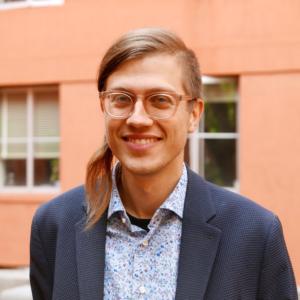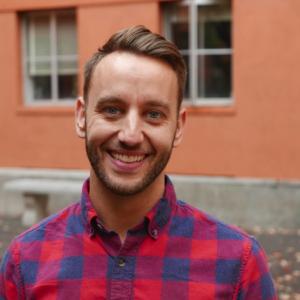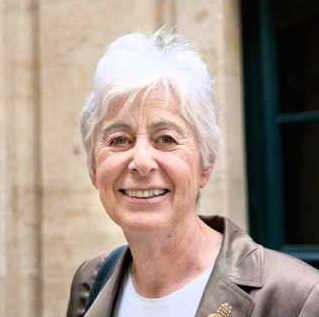Departmental News
-
Graduate Students Win 2020 Outstanding GSI Award
April 8, 2020
Graduate students Adam Nunes, Kumars Salehi, and Jonas Teupert have received the 2020 of the Outstanding GSI Award. Each year the Graduate Division honors GSIs each year for their outstanding work in teaching. Adam, Kumars, and Jonas have shown dedication, skill and creativity in their teaching. Congratulations Adam, Kumars, and Jonas!



-
Professor Claire Kramsch Wins Book Prize
December 8, 2019
Professor Claire Kramsch's most recent book, The Multilingual Instructor: What Foreign Language Teachers Say about Their Experience and Why It Matters (with Lihua Zhang), won the MLA's Kenneth W. Mildenberger Prize. The prize is awarded to an outstanding work in the fields of language, culture, literacy, and literature with strong application to the teaching of languages other than English. Congratulations Professor Kramsch!
-
CfP: 29th Annual Berkeley German Studies Conference – Schul(d)en: Guilt, Debt, Education
November 16, 2019
The Berkeley German Department is pleased to announce a call for papers for the 28th Annual Berkeley German Studies Conference. Please send submissions to berkeleygermanconference@gmail.com by December 31, 2019.
-
Call for Applications
November 1, 2019
The Department invites applications for multi-year doctoral fellowships in all areas, including cross-disciplinary studies. In cooperation with the Center for Jewish Studies we also offer support for students working on German-Jewish topics. In addition, we are very proud to announce the newly established Sunrise Foundation Fellowship in German Film and Media. For more information on application details, please click here.
-
Professor Deniz Göktürk Publishes Book
-
Gift of New Fellowship
September 27, 2019
We are grateful to the Sunrise Foundation for the establishment of a new Fellowship in German Film & Media. The Sunrise Foundation for Education and the Arts has a central mission in the promotion of German film and media. It recently sponsored the reconstruction and distribution of several classic silent films (Das alte Gesetz 1923 and Die Stadt ohne Juden 1924) and has supported the academic study of German cinema through workshops and seminars.
-
Call for Applications
September 20, 2019
The Department invites applications for multi-year doctoral fellowships in all areas, including cross-disciplinary studies. In cooperation with the Center for Jewish Studies we also offer support for students working on German-Jewish topics. In addition, we are very proud to announce the newly established Sunrise Foundation Fellowship in German Film and Media. For more information about applications, please see our website's section on graduate admissions.
-
Graduate Student Landon Reitz Presents at Congress on Medieval Studies
September 3, 2019
Last May, graduate student Landon Reitz presented a paper at the 54th International Congress on Medieval Studies at Western Michigan University in Kalamazoo, MI. He presented his paper, "Reading with the Entire Body," on a panel convened by the Center for Medieval and Early Modern Studies, Stanford University.
-
15 Graduate Students Awarded Max Kade Foundation Summer Grants
September 3, 2019
-
Professor Niklaus Largier Hosts Summer School with Universität zu Köln





